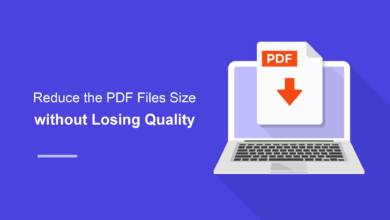9 Best Advice for Your Buying Next Car in 2023

Buying a new car is always exciting but can also be overwhelming. With so many available options, choosing the right car that fits your lifestyle and budget can be challenging. To help you make the right decision, we have compiled a list of 9 best advice for buying your next car in 2023. From researching the market to test driving, these tips will ensure you make an informed decision and drive away in a car you love.
Buying a car is a significant milestone in many people’s lives. Whether it’s your first car or an upgrade from your current vehicle, the process can be exciting and overwhelming at the same time. With so many options, it’s essential to research and make an informed decision. This article will discuss the best advice for buying your next car in 2023.
Read More: 7 Ways to Save Money on Car Insurance
Research the market
Before making a decision, it’s essential to research the market thoroughly. This includes analysing the type of car you want, the features it should have, and the price range that suits your budget. You can start by browsing car websites, reading reviews, and comparing prices. This research will help you make an informed decision when buying a car.
Set a budget
Setting a budget is crucial when buying a car. You should determine how much you can afford to spend on a car and stick to it. A general rule of thumb is that your monthly car payments should not exceed 15% of your monthly income. Remember that owning a car involves additional expenses like insurance, maintenance, and fuel costs. So, make sure to include these costs in your budget.
Consider the type of car you need
The type of car you need depends on your lifestyle and preferences. If you have a family, an SUV or a minivan might be more practical, while a sports car or a sedan might be more suitable for a single person. You should also consider the type of roads you’ll be driving on, the weather conditions, and the distance you’ll be driving.
Think about fuel efficiency
Fuel efficiency is another essential factor to consider when buying a car. A car with better fuel efficiency will save you money in the long run. Consider hybrid or electric cars, which are more fuel-efficient and eco-friendly. If you prefer gasoline cars, look for models with better gas mileage.
Look for safety features
Safety features are essential for any car and should be a top priority when buying a car. Look for features like airbags, anti-lock brakes, blind-spot monitoring, rear-view camera, and automatic emergency braking. These features can help prevent accidents and keep you safe on the road.
Check the warranty
Before buying a car, make sure to check the warranty. The warranty covers repairs and maintenance costs for a specific period after you buy the car. Look for a car with a more extended warranty period, which will save you money on repairs and maintenance.
Take a test drive

Taking a test drive is essential when buying a car. It allows you to experience how the car feels on the road, how comfortable it is, and how it handles. Pay attention to the steering, brakes, suspension, and transmission during the test drive. Don’t rush the test drive; take time to get a feel for the car.
Negotiate the price
Negotiating the price can save you money when buying a car. Do your research, know the car’s market value, and don’t be afraid to negotiate the price. You can arrange the price with the salesperson or hire a car broker who can negotiate on your behalf.
Don’t rush the decision

Buying a car is a significant investment, so take your time to make the right decision. Don’t feel pressured to buy a car on the spot or sign a contract without reading it thoroughly. Take some time to think about the car you want and the price you’re willing to pay. Don’t be afraid to leave a deal if it feels wrong.
Read More: Reasons To Hire An Injury Lawyer After A Car Accident
FAQs
Is it better to buy a new or used car?
It depends on your budget and preferences. A new car may have a warranty, better safety features, and better fuel efficiency, but it will also be more expensive. A used car may be more affordable but not have all the latest features or higher maintenance costs.
How much should I spend on a car? Your car budget should not exceed 15% of your monthly income. However, the amount you spend on a car depends on your financial situation and the type of car you want.
What are the most critical safety features when buying a car?
Airbags, anti-lock brakes, blind-spot monitoring, rear-view camera, and automatic emergency braking are some of the essential safety features to look for when buying a car.
Should I test-drive a car before buying it?
Yes, taking a test drive before buying a car is essential to get a feel for the car and how it handles on the road.
Can I negotiate the price of a car?
Yes, you can negotiate the price of a car. Do your research and know the car’s market value before dealing with the salesperson.
Conclusion
Buying a new car can be daunting, but with the right advice, you can make an informed decision and drive away in a car you love. Remember to research the market, set a budget, consider the type of car you need, think about fuel efficiency, look for safety features, check the warranty, take a test drive, negotiate the price, and don’t rush the decision.
By following these nine tips, you’ll be able to find the perfect car that meets your needs and fits your budget. Happy car hunting!












One Comment